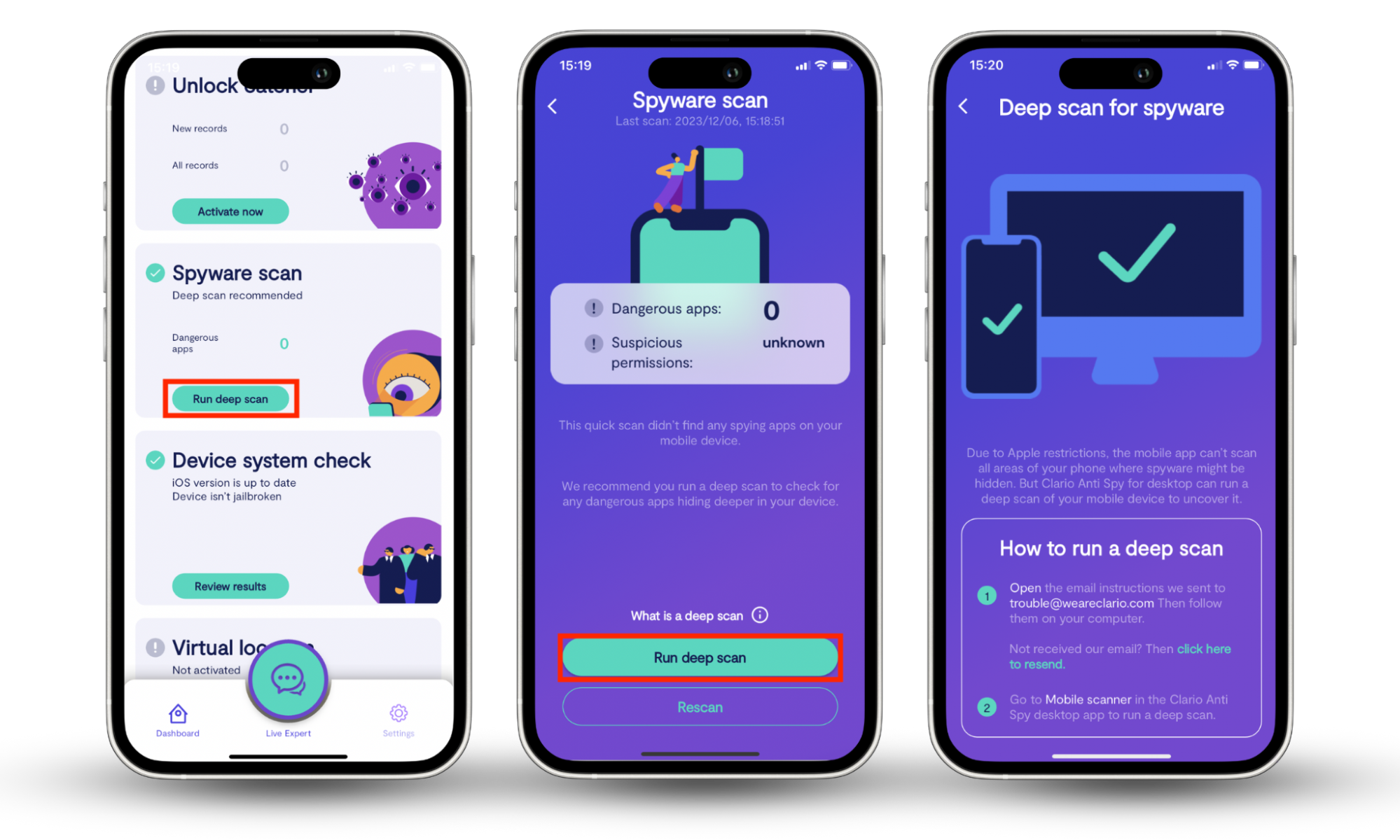Table of contents
- Signs your ex stalking you
- What does it mean when your ex stalks you
- What are examples of stalking behavior
- What to do if your ex is stalking you
- 1. Tell friends and family
- 2. Don't downplay their behavior
- 3. Be direct with them
- 4. Don't go out by yourself
- 5. Document the evidence
- 6. Secure your privacy
- 7. Set strong passwords
- 8. Change your number
- 9. Report it to the police
- 10. Spend more time out in public
- 11. Be ready for an attack
- 12. Consider a security system
- 13. Avoid third parties who may contact your ex
- 14. Keep your private life private
- 15. Take a self-defense course
- 16. Request a restraining order
- Conclusion
Signs your ex stalking you
It can be hard to tell if your ex is stalking you. Some actions are obvious, while others can be more subtle. If you're questioning your ex’s behavior, don’t ignore that feeling. Stalking can escalate to more dangerous behavior, so it’s important to recognize the signs early.
Here are signs your ex is stalking you:
- Excessive communication: If the calls, texts, and messages come in daily, they could be considered stalking—especially if you had asked your ex to stop.
- Monitoring social media: If your ex “sees” or engages in all your social media activity, they could be monitoring your activity and movements through your profiles—or taking an unhealthy interest in your life.
- Showing up unannounced: If your ex follows you or shows up at places you frequent— like work, school, or your favorite shop—it’s a definite red flag.
- Asking mutual friends: Your ex might talk to your mutual friends to gain information about you. Ask your friends to stop mentioning you or, if need be, distance yourself from these friends.
- Unwanted gifts: Just because your ex is showering you with unwanted gifts, you are not obligated to feel grateful or reciprocate. “Gifts'' can be a means to gain control over you. This controlling behavior is a hallmark of narcissist stalking, where the stalker seeks to manipulate and dominate their victim.
- Feeling watched or followed: Trust your instincts. You may have a “feeling” rather than solid evidence of stalking—don’t ignore it. Take your feelings seriously and stay vigilant.
Sometimes, your stalker might not be your ex at all. Wondering to yourself: why did my ex's new girlfriend message me? Read our guide to find out why and how to deal with it.
What does it mean when your ex stalks you
Generally, stalking indicates a desire to reconcile the relationship, an inability to let go, obsession, and/or an attempt at control. A wide range of behaviors constitutes stalking—some annoying, others dangerous. Either way, you don’t need to tolerate your ex’s behavior. If you’re uncomfortable, do something to remedy the situation.
What are examples of stalking behavior
How do you know if your ex stalks you on social media or offline? There’s a broad list of behaviors that constitute stalking, from repeated (unwanted) communication to outright threats. To find out if your ex is stalking you, use these examples of common stalking behavior:
- Repeated unwanted communication: This can include calls, texts, emails, and social media messages that persist even when you don’t respond or when you indicate you are not interested.
- Following or monitoring: This can mean physically following you or monitoring your whereabouts or activities digitally—via GPS, spyware, or hacking into social media or email accounts.
- Unwanted gifts: Gifts from a narcissist ex are manipulative because there is an expectation that you should reciprocate or show gratitude. If you’ve made it clear that you are not interested in someone, you have no obligation to accept their gifts.
- Threats or manipulation: Some stalkers manipulate your emotions—others are downright aggressive with threats or attempts at blackmail. They can even aim this intimidation towards people you're dating, friends, or another close person.
- Online harassment: This entails harassing victims through social media platforms or other online channels with offensive comments and messages, spreading rumors, or using fake profiles to monitor your social pages.
- Gathering information: This can include your address, phone number, workplace, or daily schedule. Stalkers can use this information for further stalking activities.
Sometimes, you may not even be aware you’re being stalked. Cyber tools like spyware can be difficult to detect and can follow your every digital move—this can go on for years. A dedicated cybersecurity tool like Clario Anti Spy will automatically detect and get rid of silent spyware on your devices.
Here’s how it works to run a spyware scan on your device:
- Download Clario Anti Spy and create an account.
- Under Spyware scan, click Run deep scan.
- Follow the on-screen instructions to run a deep spyware scan.
- Suppose Clario Anti Spy detects any spy app or spyware on your phone or computer. In that case, it will walk you through the process of eliminating malicious apps and minimizing the impact already done.

What to do if your ex is stalking you
Help—my ex is stalking me! If you believe you're being stalked, it's crucial to deal with it. Don’t make excuses for your ex or underplay their actions. Stalking can escalate into more dangerous behavior, so do something before it worsens.
Here’s what to do if your ex is stalking you:
1. Tell friends and family
Stalking can have a big emotional impact on you. Don’t keep it a secret. Talk to trusted friends, family members, and co-workers about the harassment so they can support you and be aware of what's happening. Help can come in many forms, whether it’s advice or extra eyes on guard for you. If needed, speak to a licensed professional.
2. Don't downplay their behavior
Stalking is a serious infringement of your privacy—don’t downplay it. It's crucial to take proactive steps to ensure your safety and well-being. Downplaying may inspire your stalker to continue their behavior and prevent you from seeking the help you need.
3. Be direct with them
Oftentimes, an obsessed stalker’s perception of their actions is wildly different from reality. They may not even realize that they are stalking you. Being direct and open with your communication may help them come to their senses. Communicate their actions and how they make you feel, and directly ask them to stop.
4. Don't go out by yourself
It sounds unbelievable, but your ex-boyfriend or girlfriend might be following you. Until the stalking definitively stops, consider avoiding going out alone. Having friends, family, or others around may deter your stalker from taking potentially violent actions against you.
5. Document the evidence
Keep detailed records of stalking incidents, including dates, times, locations, and descriptions of what happened. Save any messages, emails, voicemails, or other forms of communication from your ex. All of this will be useful if you decide to press charges. Also, this evidence helps you predict behavior patterns and convey the situation's seriousness to others.
6. Secure your privacy
A stalker can exploit the information you have available online and on your devices. Secure your privacy by reviewing and adjusting social media privacy settings, changing passwords, and not sharing private information, like your address, phone number, or schedule.
7. Set strong passwords
A stalker may try to access your devices or online accounts. And if it's your ex, they may know or be able to guess your passwords. Set unique, complex passwords for each of your devices and profiles. If you know your ex is stalking you on social media, use 2FA (two-factor authentication) to add an extra layer of security.
8. Change your number
Your ex most likely has your phone number—if possible, change it. Doing so will sever a direct line of contact with you. Also, some online profiles are connected to your phone number, so changing your number will also help secure them.
Also, if your phone is acting strange, you may think to yourself: Can my ex track my phone? Unfortunately, yes, it’s possible. Read our guide to learn your next steps.
Tip
Scan your device for spy apps with Clario Anti Spy, and if found, report it to the police immediately.
9. Report it to the police
Your stalking case may warrant intervention by the police. Don’t wait to find out—contact law enforcement and inform them of your situation. Besides having legal authority, the police will have experience with stalking and can advise you on the steps you should take.
You can report your situation to local law enforcement or call the national hotline on the Department of Justice website.
10. Spend more time out in public
Spending time out in public may stop your stalker from taking drastic measures. Being around others may also help you feel safer and take you out of your own head. A stalking situation can affect mental health, and for some victims, the company of others can provide relief.
11. Be ready for an attack
A stalker can be erratic and volatile—you should always be prepared for the threat of violence. Develop a safety plan and safe spaces in the event of an attack, be extra aware of your surroundings, and consider carrying personal safety tools, like pepper spray or a personal alarm.
12. Consider a security system
The anticipation of a home invasion-type situation may put you on edge. The additional layer of protection from a home security system can give you peace of mind. Also, having evidence of a security situation may prevent a stalker from attempting to disturb your home.
13. Avoid third parties who may contact your ex
If you and your ex have mutual friends or acquaintances, try to avoid them for a while. You never know who is talking to whom. The third party may feed personal information about you to your ex, which could be used for further stalking.
14. Keep your private life private
Oversharing online is never good—but it’s especially dangerous if you’re being stalked. Avoid posting too many details of your life on social media, limit personal information on your profiles, and keep a tighter circle of close friends. People talk, and information can leak out to your ex-boyfriend or girlfriend.
15. Take a self-defense course
Though it may seem extreme, a self-defense course can have many benefits. By giving you knowledge of what to do in case of an attack, it will increase your confidence in handling your stalking situation. Plus, in the event of future unrelated incidents, you’ll have the skills to defend yourself.
16. Request a restraining order
A restraining order will make it illegal for your ex to continue stalking you. A restraining order can prevent your ex from contacting you, coming close to you, or approaching you—it can also order them to surrender their weapons. Sometimes, having the law on your side is all it takes to keep your stalker at bay.
Conclusion
Detecting stalkers in today’s tech-savvy world is tricky. The obvious (physical) signs are still out there, but technology helps stalkers hide in the digital shadows. Tools like Clario Anti Spy are designed to root out snoops—including stalkers. The spyware scan will scan and detect spyware tools, along with other malware. Keep your privacy secure from stalkers and others using Clario’s AntiSpy.


